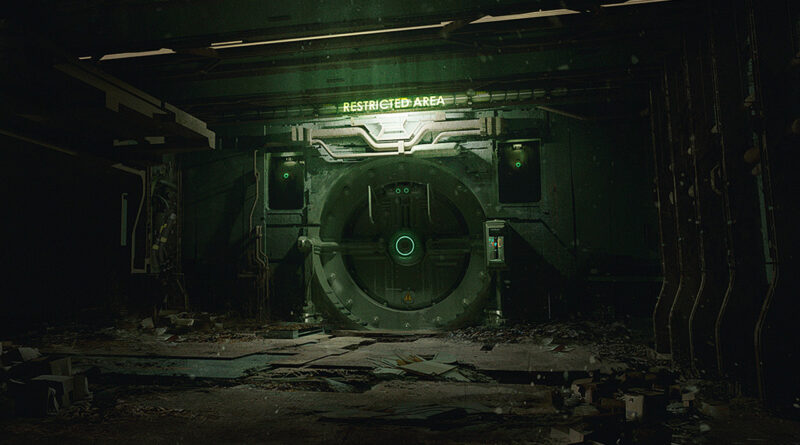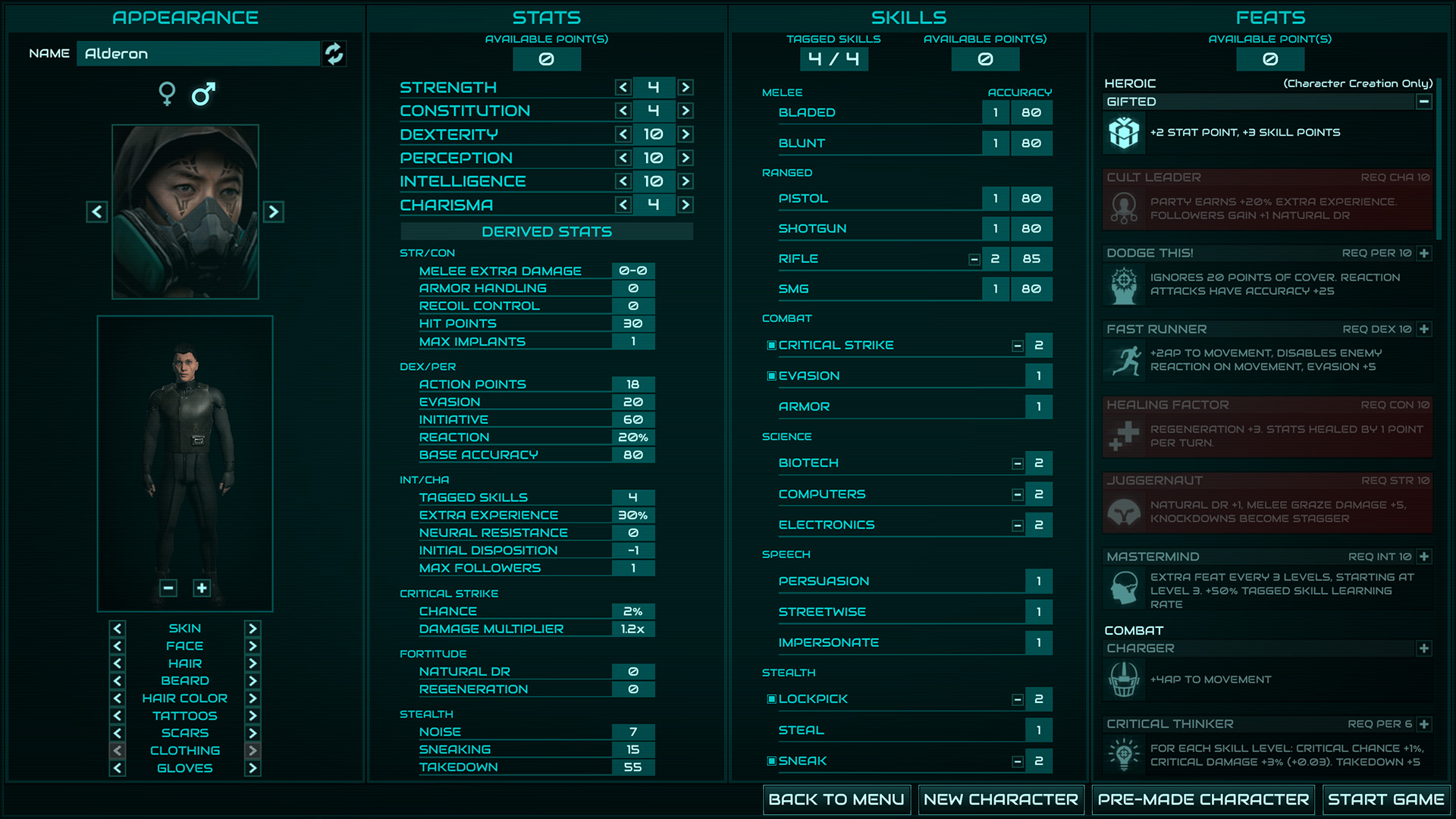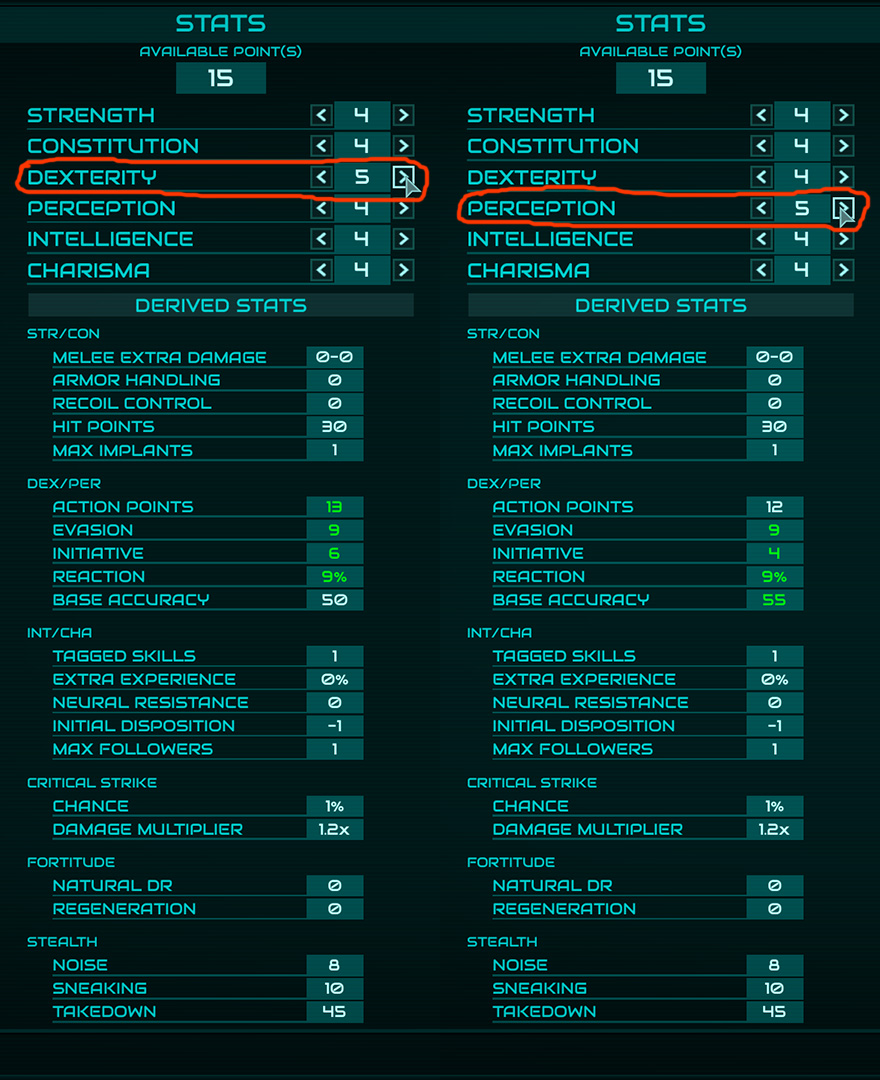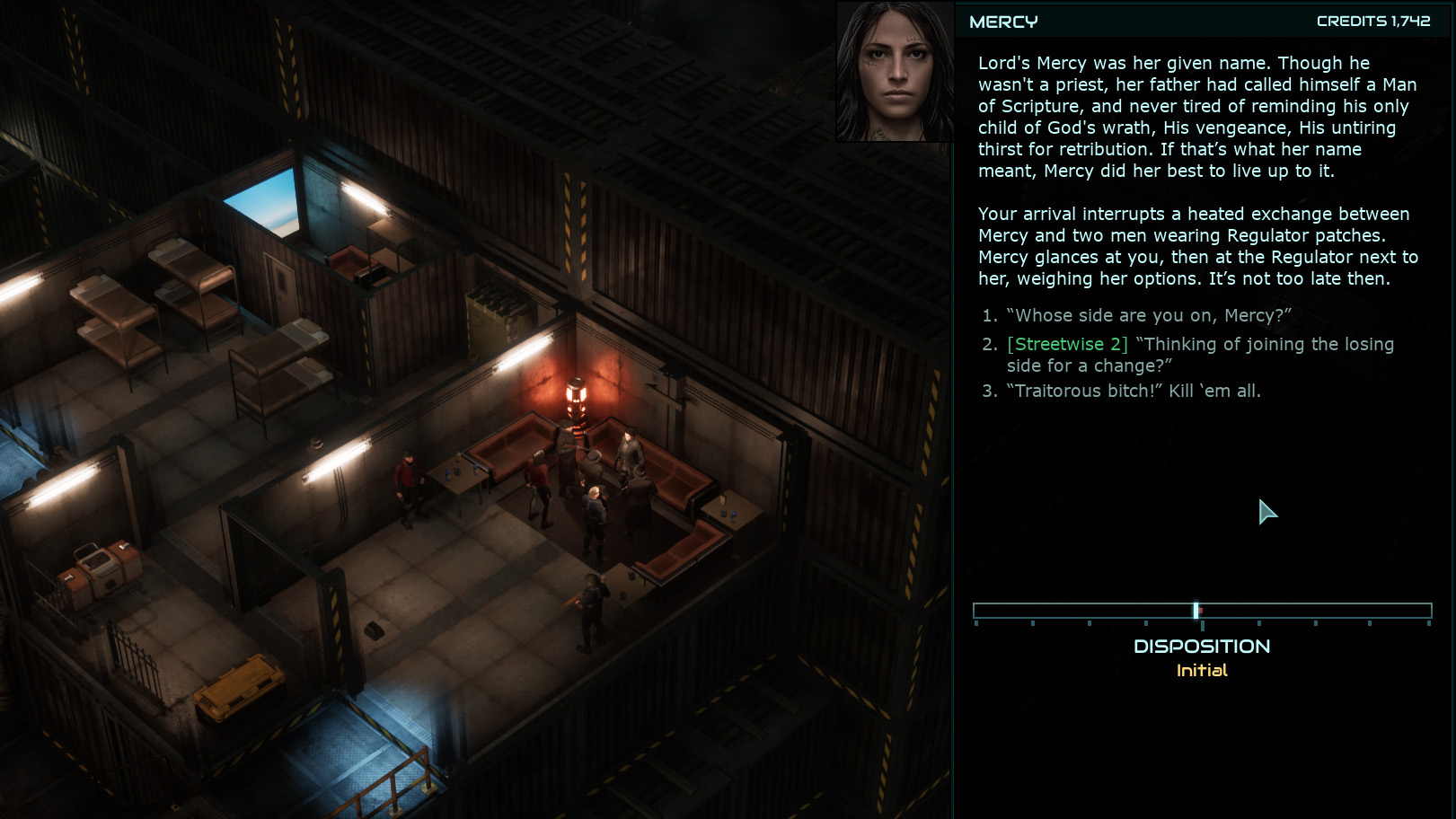Colony Ship Review – challenging Sci-Fi CRPG from The Age of Decadence Developers
Review trait:
Your humble didn’t play The Age of Decadence, nor he read Orphans of the Sky before trying the Colony Ship. Many positive reviews for this game refer to The Age of Decadence and Colony Ship being its sci-fi successor. Similar goes for the Orphans of the Sky book which was the story inspiration for the game. As I’m not experienced with neither of them I won’t be able to directly compare them or point on the references or easter eggs. But this also means the review will not have any kind of “bonus points” and will rate exactly and only the Colony Ship game as is.
The game is also still in early access – the world and storyline are not yet fully available, so this article talks about the first part of the game. I’ll also revisit the game later to update it.
The setting:

Colony ship is a turn-based, isometric sci-fi RPG set on the huge spaceship in the deep space. Story is inspired by the Orphans of the Sky, a science fiction novel by the “dean of science fiction writers”, Robert A. Heinlein. Btw, one of the most ambiguous and memeable sci-fi movies of 90th, Starship Troopers, was based one the same named novel written by him (not related to the game setting though).
A huge generation ship cruises through the interstellar medium without guidance. The ship’s mission is to colonize a distant planet in Proxima Centauri system – but this goal is long forgotten after centuries and a violent mutiny which disbanded the original ship’s “government”.
You have never seen Earth and you’ll never see Proxima Centauri either. You’re doomed to live and die on the Ship in the name of the Mission, like your father before you, like his father before him. So why not to get on with your life and try to make the best of it? You start the game as one of the Freemen (scavenging faction living out of the “civilized” part of the ship) who grew up in the slums and thus have limited knowledge of the “world” beyond. So when you travel there for the first time, you’ll be a stranger and have good reasons to explore the factions and their beliefs in how to make the Ship a better place. Such a scenario allows a great “blank slate” game beginning and a proper progression within the growing scale of the game world.
Note:
The further sections of the review will contain some references to the Fallout series. First of all, because Colony Ship is clearly inspired by original Fallout games on some extent. Secondly, because it’ll be easier to some of you, my dear readers, to orient in the review as most of you should know at least the “3D” Fallout games, like Fallout New Vegas.
Character creation and stats:
Character creation is extensive, complex and just interesting. The basic attributes system relies on: Stats (similar to S.P.E.C.I.A.L. in Fallout), Skills and Feats (similar to Traits and Perks).
There are also Derived Stats, which are child attributes to the Stats and some Skills. Each Stat has several Derived Stats that it affects, and a certain Derived Stat can be affected by multiple Stats – but on a different scale.
For instance, Dexterity and Perception both affect 3 same Derived Stats – Evasion, Initiative and Reaction. For every point of Dexterity and Perception, you will increase Evasion and Reaction on 1% respectively. But as for Initiative, every Dexterity point increases it by 6, while Perception point – only by 4. Lastly, Action points are affected only by Dexterity and Base Accurasy – only by Perception. Some other Derived Stats, like crit chance or sneaking noise, are affected by Skills instead. This system is similar to the one existed in Fallout games, but it’s a bit more complex and variative.
The Skills are quite self-explanatory, and the Feats are like (compared to Fallout) both Traits and Perks combined. You can pick one Feat during the character creation, and after that – at levelups. Most of the Feats require certain (logically fitting) Stat to be high enough, some don’t have requirements and some you can pick only when creating your character. The amount of Feats is tasty enough for you to get lost at the character creation in a good meaning of this.
Unique reputation system:
Asides from all these “classic” attributes there are a “social” ones and their subcategories. The most familiar one is the Faction Standing, which is your regular reputation amongst the 4 major factions. The General Reputation and Beliefs also have 4 subcategories each, every of which is quite literally affected by your actions. This includes not only quest and dialogue choices, but even the playstyle preferences. Whether you prefer to sneak around or bush skulls instead of talking, explore every corner or avoid suspicious places, speak with logical arguments or authority – all this actually builds up your character reputation. This, in turn, changes how you will be treated in situations yet to come.
The story:

It is seemingly simple yet captivating. Your walkthrough starts from a generic “go there, bring this” tasks, but even during first simple quests, you will face different outcomes right from the beginning.
The pace of how the story unwraps, the narration – everything seems to be balanced enough to be neither too overwhelming nor lacking. The Ship is just a ghost of its initial, glorious goal – and the various factions fight both with arms and ideologically to control it. As for the factions, you can find everything – remnants of the old order who still pretend they care about the Mission. The zealous religious cult. The brotherhood of “freedom” which is corrupted from inside. The mythical, meditating monks who may be not quite what they seem to be.
All this is taking place on a huge ship with a size of a city, where most of tech is being used on the level of apes using a notebook, and with most of the corners being abandoned, dangerous and covered in myths. The game follows the style of sci-fi novels of the middle of 20th century greatly – but also adds a bit of own touch and rude, dystopian spice on top, without ruining the original setting.
But most importantly is that storyline and writing succeed really well to show you the gloomy, uncertain, but yet alive and striving society in the place no one wants to be. Story makes you believe it and want to take action.
The choices and consequences:
The choices and consequences system (which is a base for a non-linear gameplay) in Colony Ship is great. The amount of options to pick in dialogues seems to be on pair with Fallout New Vegas or even a bit higher. And if you played FNV, you know it’s quite a compliment.
In Colony Ship, you’re not the promised savior. The game doesn’t secure you with lots of hints and popups on every step like most of the modern RPGs do.
Some seemingly miscellaneous decisions may lead to a majorly different events and outcomes. In my first run, I struggled too much with the combat simply because I killed a potential companion 20 minutes into the walkthrough because out first talk took an aggressive road.
Due to early access, game only has first part available. In it, I went through via 3 different ways in global scale. I also was able to go through not all, but most of the quests via true pacifist way. It’s important to mention that if there are X major outcomes you can get during the quest, pretty often you can achieve them in Y ways – from both combat and dialogue aspects.
As also mentioned above, there is an additional “reputation” system based not only on your faction and quest choices, but on your basic combat preferences and way you speak to NPCs. Those are 8 parameters from General Reputation and Beliefs tabs in your character screen.
All those combined give a feeling of a true replayability – not a generic imitation of it like majority of games with an “RPG” tag have nowadays. That’s a solid, deserved extra bonus point to the game score.
Character builds:

If you expect to get a Grim Dawn or Skyrim with Ordinator amount of character builds – no, this won’t happen here. At the same time, this doesn’t mean this part of Colony Ship is poor. There are builds with different regular and energy ranged weapons and respective feats. Melee is also viable, as well as stealth builds if you want to avoid a noisy bloodshed. Stealth is hard to implement in a turn-based game, and here Colony Ship deserves an extra praise for doing that well. You can play as a true pacifist with a silver tongue too. Lastly, there’s a telekinesis analogue as well.
The moderate amount of builds comes out not from a poor assortment of useful skills or feats, though. It’s mostly about the viable builds. Staying true to the classic RPGs, Colony Ship needs you to be actually careful when distributing your stats, skills and choosing feats – because it’s absolutely possible to come up with a weak build. It’s not like in Cyberpunk 2077 where you will be overpowered no matter which perks you will pick. Is this a plus or minus – that’s for you to decide.
The character builds assortment in Colony Ship is moderate, but more than enough to bring you multiple walkthroughs with distinct party setups (or a lone wolf run, should you want so). Weapons and extra tools (different grenades, energy shields etc) variety is also not the highest I saw in similar games – but absolutely enough to keep things fun and offer you n+1 solutions for combat. Lastly, your set of attributes also affects world interactivity – force opening doors, repairing terminals and so on.
Difficulty:


Colony Ship combat is challenging and unforgiving. Enemies have the same stats system as you – no nerfs for them just because you are player. You need to build your party properly. Analyze the battlefield to take advantage of the good spots on it. You should improve your gear and always be prepared for the battle. In some fights you may find yourself with an upper hand, in others – enemies ambushing you. If you will not think tactically and rush into the fights – you will reload very often or just come to a certain situation when you won’t be able to beat the enemy.
With everything said above, this doesn’t make the difficulty impossible. Colony Ship just clearly tells you – “if you will not use your brain, game will punish you for this”. Once again, that’s quite a subjective thing which can be both a pro for hardcore and a con for casual players.
In the end though, if you want to play the game mostly for the story – developers added the Easy Mode in the latest update. Easy Mode give extra boosts to your character and makes enemies weaker at the same time. Thus, should the regular difficulty be too tedious for you, you can always tone it down.
Graphics, audio and overall immersion:


As some of the developers tend to say, “it’s impossible to make an ugly game on Unreal Engine 4”.
While this should be not taken literally, this statement has a dose of truth in it. UE4 has lots of great assets, great lighting templates and so on. And it’s nice to say that Colony Ship developers managed to use all the well – the game looks beautiful as for an isometric RPG made by a tiny indie studio. The art style pictures the game setting well.
Soundtrack and the background sounds in the game are just fine. At the one hand, it’s not something I’d listen 24/7 after hearing it once – but on the other hand, it’s just as good to bring a great overall ambience to the gameplay, be it a combat or an exploration.
Together, visual and audio components of the game build a great immersion and feeling of presence in the game world.
An extra point and a salute of respect to developers:
Honesty and community interaction.
If CDPR would have the same level of both, Cyberpunk 2077 would probably become the best game ever existed. Take the clearly hard game difficulty. Developers don’t hide it, don’t make false promotions and don’t try to sell it to everyone. They say it as is – “yes, our game is hard, but this is because we truly believe in certain aspects of the game development”. Game page has a separate post from developers where they ask you to read it before buying. That’s an honesty you won’t see every day.
At the same time, they interact with the community and listen to it – the Easy Mode is one of the results. but it’s not just about that. Lead game developer replies to reviews and comments pretty often – and most importantly, to the negative ones. Once again honestly, but without being rude, he suggests solutions or asks for an extra description of an issue. If interested, you can see this on the game Steam page yourself. This behavior alone is something incredibly rare nowadays in the videogame industry, and it deserves respect.
Verdict:
Is Colony Ship worth it?
The game, at least atm, is an incredibly promising, turn based, isometric sci-fi RPG. It wraps around the concept of a generation ship and builds a believable game world with strong storyline and truly non-linear gameplay where your choices matter.
Game has a great graphics and visual style, nice soundtrack and moderate amount of character builds. Character development is pretty similar to Fallout series, but has own flavors – it’s interesting to learn.
It has a truly challenging difficulty which can be an arguable parameter for many players, but at the same time, an easy mode exists for those who play the games mostly for the story.
Developers are honest and open to the community reviews and suggestions to a healthy extent.
If you are a fan of a quality isometric RPGs and sci-fi setting, Colony Ship is a great option to try – especially considering the huge efforts of a small team behind it.
It’s still in early access though – so all the well done parts of the game mentioned in the review have yet to be finished well (and hopefully it will be exactly like that). If you don’t want to risk it, it may be worth to track the game till the release – then, I’ll also revisit it and make review of a complete game.
You can get Colony Ship at GOG and Steam.
If you want to see more reviews of hidden indie gems, look here. Want to try an incredible RPG in similar setting which is already released? Watch the Encased review video below. Cheers!






